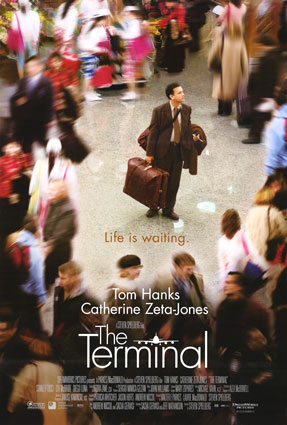‘I have no place in the world to go’
By Mikhail Sebastian, Published: July 4
Mikhail Sebastian lives in Los Angeles.
Edward Snowden’s efforts to escape the transit zone of the Moscow airport have turned a spotlight on the issue of “statelessness.” Snowden, however, is not stateless. He has options, regardless of how unappealing he may find them. But thousands of people in the United States are stateless — and trapped. Congress should take steps to address this issue and ensure that what has happened to me never happens to anyone else.
I am an ethnic Armenian. My parents are from Nagorno-Karabakh, the disputed territory in Azerbaijan. I was born in Azerbaijan in 1973, when it was part of the Soviet Union. My family was in Turkmenistan when the U.S.S.R. collapsed, and no one would give me citizenship. Because I am of Armenian descent, Azerbaijan said I wasn’t an Azerbaijani. Armenia said that I hadn’t adequately proved I belonged there. After more than three years of discrimination, harassment and fear, I was able to get a travel visa to the United States in 1995. But my petition for asylum was rejected in 1996, and I was ordered to leave the country.
I prepared to go, but I was not able to get a new passport to travel. The Soviet Union, which had issued my passport, no longer existed, and no country recognized me as a citizen. Because I stayed beyond the deadline to leave, the United States processed a deportation order. Immigration officials detained me in August 2002 and tried for months to deport me. But U.S. officials couldn’t find a country willing to accept me.
Read the rest here
By Mikhail Sebastian, Published: July 4
Mikhail Sebastian lives in Los Angeles.
Edward Snowden’s efforts to escape the transit zone of the Moscow airport have turned a spotlight on the issue of “statelessness.” Snowden, however, is not stateless. He has options, regardless of how unappealing he may find them. But thousands of people in the United States are stateless — and trapped. Congress should take steps to address this issue and ensure that what has happened to me never happens to anyone else.
I am an ethnic Armenian. My parents are from Nagorno-Karabakh, the disputed territory in Azerbaijan. I was born in Azerbaijan in 1973, when it was part of the Soviet Union. My family was in Turkmenistan when the U.S.S.R. collapsed, and no one would give me citizenship. Because I am of Armenian descent, Azerbaijan said I wasn’t an Azerbaijani. Armenia said that I hadn’t adequately proved I belonged there. After more than three years of discrimination, harassment and fear, I was able to get a travel visa to the United States in 1995. But my petition for asylum was rejected in 1996, and I was ordered to leave the country.
I prepared to go, but I was not able to get a new passport to travel. The Soviet Union, which had issued my passport, no longer existed, and no country recognized me as a citizen. Because I stayed beyond the deadline to leave, the United States processed a deportation order. Immigration officials detained me in August 2002 and tried for months to deport me. But U.S. officials couldn’t find a country willing to accept me.
Read the rest here





Comment